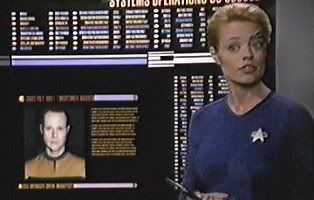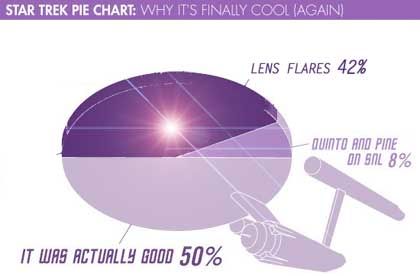
We all study at the feet of giants. Even if they are only giants in our own minds, we get from where we are to where we want to be by studying others. As an aspiring writer, I look towards people who write and are not only enjoying a measure of success, but have what I consider to be an accessible method. Instead of admiring folks who are successful but come off as either completely selling out or being a pioneer in their own cult of personality without doing so with their tongue embedded in their cheek.
Here are the people I’m checking out to make sure I don’t wander too far from the path of good writing.
Terribleminds
It’s the Magic Talking Beardhead. Need I say more?
I do? Okay, it’s this guy Chuck. He writes lots of things. He writes things well. In fact he writes so well he was recently at the Sundance for a screenwriter’s workshop and rubbed elbows with greats. It was kind of like the experience of meeting cool folks at GameX, only Chuck got really good feedback from others already in the industry. I got a couple signatures and some compliments on my clever handle. Anyway, if you’re not already reading Terribleminds, you should be. So go and do.
Wordstudio
Will Hindmarch is somebody else I’ve met. It was years ago at an event called NEGLECT in Chicago. It was in the embryonic days of Vampire: The Requiem and he ran some of us through an example module. It was an absolute blast. Will is a friendly, creative guy, and to this day the only Requiem item I own is the storyteller’s screen he signed which I won on a random die roll.
I confess I don’t comment on his blog as often as I should, but he’s always got good ideas on writing and insightful meditations on other writers. It’s like the stuff I post here, but better.
Wil Wheaton
This guy might be one of the coolest cats on the planet. Seriously. What’s that? You thought Wesley Crusher sucked? Well, so does Wil. In his Memories of the Futurecast he not only takes the piss out of the first season of Star Trek: The Next Generation in general but himself in particular. I really want to pick up his book, as it sounds like a fantastic mix of nostalgia and facepalming, as he puts it.
To say that Wil is an inspiration would be a gross understatement. Here is a man who spent many of his formative years in the public spotlight but never got too far ahead of his own shortcomings. He’s had his share of interesting journeys both across the country and into himself, and the result is a surprisingly humble and humorous man who isn’t afraid to be a nerd, never hesitates to laugh at his own failings and is deeply thankful for being where he is now. Go read his blog, listen to Radio Free Burrito, and brew up some Tea, Earl Grey, Hot.
Kung Fu Monkey
This is hot stuff, dear readers. Like fresh off of the presses stuff. I just came across Kung Fu Monkey today. This morning. And it’s all thanks to Wil Wheaton. He told his listeners about Jon Rogers, writer for the TV show Leverage, doing cool stuff over on his blog. I went over there, and I’m glad I did.
Wil Wheaton: Giving you the mad nerd hook-up and reminding you not to be a dick.
Anyway, Rogers talks about writing for the show, and does post-mortems of the episodes where he takes the questions of the audience. It’s really fascinating, to peek into the mind of a creative work in progress that is already successful. It’s worth your time to check out.
Did I mention Wil Wheaton’s an inspiration? Well, he is. He’s inspired me.
“What’s he inspired you to do, Josh?”
Oh, you’ll see. You’ll see.
Stay tuned. There’ll be something of a special announcement during tomorrow’s IT CAME FROM NETFLIX! which I am really looking forward to doing – it’s something more recent per request from fans at the Escapist – so please cruise by tomorrow and give a listen. Thanks.
Now back to your regularly scheduled Thursday.









